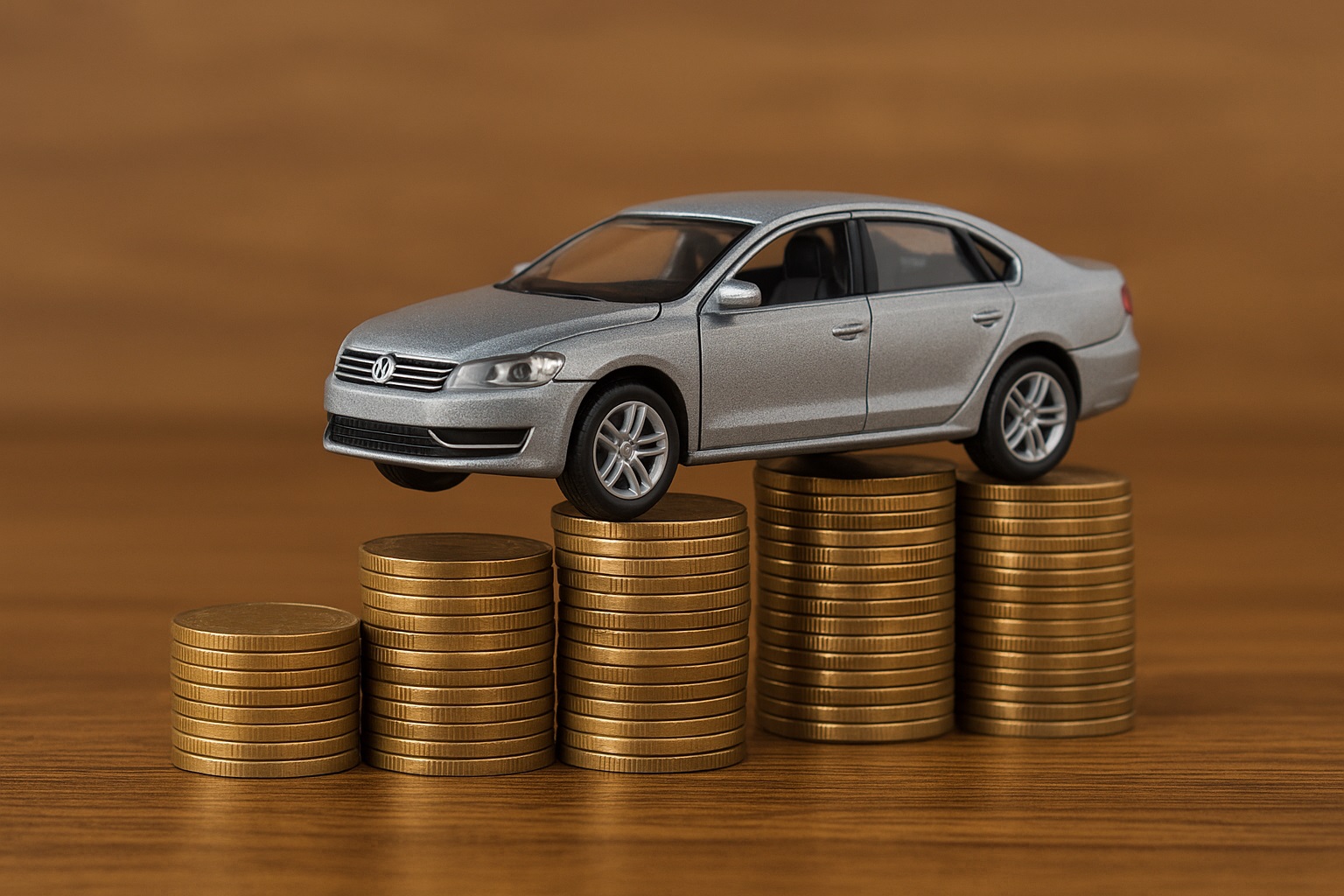1. Introduction
The question of whether your credit score will increase after paying off your car loan is a common one among individuals seeking to improve their financial standing. A car loan is a significant credit account, and its payoff can have notable effects on your credit score. This article will delve into the details of how your credit score might be affected, providing insights and actionable tips to help you navigate the aftermath of paying off your car.
2. Understanding Credit Scores
What is a Credit Score?
A credit score is a numerical representation of your creditworthiness, calculated based on your credit history. Lenders use this score to assess the risk of lending you money. Credit scores typically range from 300 to 850, with higher scores indicating better creditworthiness.
Factors Affecting Your Credit Score
Several factors contribute to your credit score, including:
- Payment History (35%): Your track record of paying bills on time.
- Credit Utilization (30%): The ratio of your current credit card balances to your credit limits.
- Length of Credit History (15%): The age of your credit accounts.
- Credit Mix (10%): The variety of credit accounts you have (e.g., credit cards, installment loans).
- New Credit (10%): Recent credit inquiries and newly opened accounts.
3. The Impact of Paying Off a Car Loan on Your Credit Score
Positive Impacts
- Reduced Debt-to-Income Ratio: Once the car loan is paid off, your overall debt load decreases. This can positively affect your debt-to-income ratio, making you appear less risky to lenders.
- Improved Credit Utilization: Paying off an installment loan like a car loan can free up credit resources that could potentially be used to manage other forms of credit more efficiently.
- Enhanced Credit Score Potential: A paid-off car loan means one less account with a balance. This can lead to an increase in your credit score, particularly if your credit profile was previously weighted down by the car loan.
Potential Negative Impacts
- Reduced Credit Mix: Closing a credit account, like an auto loan, can reduce the diversity of your credit profile. Lenders prefer to see a mix of credit types, and losing a type can potentially affect your score.
- Short-Term Score Drop: In some cases, your credit score might experience a brief dip after paying off a car loan due to changes in your credit utilization and credit mix.
4. Detailed Breakdown of Factors
Credit Utilization
Credit utilization refers to the ratio of your credit card balances to your credit limits. While a car loan doesn’t directly affect this ratio, paying off the loan can influence your overall credit management. With fewer debts, you may be able to focus on managing your credit card balances more effectively, which can positively impact your credit utilization ratio.
Payment History
Your payment history is the most significant factor in determining your credit score. Successfully completing your car loan payments contributes positively to this aspect. A paid-off car loan demonstrates your ability to manage debt responsibly, which can reflect well on your credit report.
Length of Credit History
The length of your credit history contributes to your credit score. If your car loan was one of your oldest accounts, paying it off might reduce the average age of your credit accounts. This can impact your score, though typically not dramatically if you have other long-standing accounts.
Credit Mix
Having a variety of credit types—credit cards, installment loans, mortgages—can positively affect your credit score. A car loan is one type of installment loan. When you pay off the loan, you might lose some of this credit diversity, which could impact your score slightly.
5. How to Maximize the Benefits of Paying Off Your Car Loan
Monitoring Your Credit Report
Regularly review your credit report to ensure that the car loan is marked as paid off and that there are no errors or inaccuracies. You can get a free credit report from each of the three major credit bureaus (Experian, Equifax, and TransUnion) annually at AnnualCreditReport.com.
Managing Other Debts
To leverage the positive impact of paying off your car loan, focus on managing other debts. Reducing high-interest credit card balances and making timely payments on existing loans can further improve your credit score.
Maintaining a Diverse Credit Portfolio
Consider maintaining a mix of credit types to support a healthy credit profile. While your car loan may be paid off, having other credit types, such as credit cards and a mortgage, can be beneficial for your credit score.
Avoiding Common Pitfalls
- Avoid Closing Old Accounts: If the car loan was one of your oldest accounts, avoid closing other older accounts to maintain a longer credit history.
- Don’t Open Unnecessary Credit Accounts: Opening new credit accounts just to diversify your credit mix can sometimes lead to more harm than good, especially if you incur additional debt.
6. Common Myths and Misconceptions
“Paying Off My Car Loan Will Automatically Increase My Credit Score”
While paying off your car loan can positively impact your credit score, the increase is not guaranteed and might not be immediate. The effect can vary based on your overall credit profile and how well you manage other aspects of your credit.
“You Need to Keep a Loan to Maintain a Good Credit Score”
Keeping a loan open is not necessarily required to maintain a good credit score. Responsible management of existing credit accounts and timely payments can maintain or improve your credit score without ongoing loans.
7. Additional Tips for Improving Your Credit Score
Paying Down Credit Card Debt
One effective way to boost your credit score is by reducing your credit card debt. Lowering your credit utilization ratio improves your credit score and can enhance your creditworthiness.
Ensuring Timely Payments on Other Accounts
Consistently making timely payments on all credit accounts, including credit cards and other loans, is crucial for maintaining a good credit score. Late payments can negatively impact your credit history.
Using Credit Wisely
Use credit responsibly by keeping balances low and avoiding unnecessary debt. Responsible credit use includes paying off balances in full each month and only taking on credit that you can comfortably manage.
8. Case Studies
Case Study 1: Improving Credit Score Post-Car Loan
Jane, who had a car loan with a $15,000 balance, paid off the loan in full. Her credit score initially saw a minor drop due to reduced credit mix but rebounded within a few months. By maintaining low credit card balances and making timely payments on other accounts, Jane’s credit score improved significantly, and she eventually qualified for a better mortgage rate.
Case Study 2: Potential Setbacks and Solutions
John had a car loan that was one of his oldest credit accounts. After paying off the loan, his credit score dropped slightly due to the reduced credit mix. John addressed this by keeping his other credit accounts in good standing and taking on a small, manageable credit card to diversify his credit mix.
9. Conclusion
Paying off your car loan is a significant financial milestone that can have various effects on your credit score. While it generally contributes positively to your credit profile, the impact can vary based on your overall credit situation. By understanding the factors involved and following actionable tips, you can maximize the benefits of paying off your car loan and continue to build a strong credit profile.
Maintaining good credit practices, managing other debts responsibly, and keeping an eye on your credit report are key steps in ensuring that you not only see improvements in your credit score but also achieve overall financial health.



